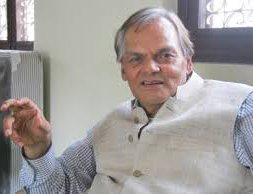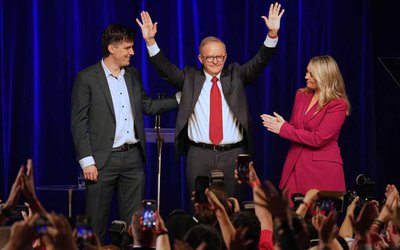
How do you view the present political crisis?
The ongoing political crisis is the result of hasty promulgation of the new constitution by Constituent Assembly. With the promulgation of the new constitution, Nepal’s political crisis has entered into a new phase of multiple conflicts.
How can you say so when many leaders of political parties have been saying that this is the best constitution of the world?
(Laughing) Our need is not the best constitution of the world or the best constitution of South Asia, but the best constitution for Nepal.
What do you suggest to settle the present crisis and lift the blockade?
Time is running out. Political leaders must address the demands of Madheshis and accommodate them in the constitution. I don’t think that will happen until the new constitution declares Nepal as a Hindu State. The current problem is likely to continue.
If the political leaders address the demands of Madheshis but they do not declare Nepal as a Hindu state, will this end the deadlock?
I don’t think so. There is the need to address all issues in a package as demanded by Madheshi leaders as well as Hindus.
The leaders of three political parties hold the view that the political crisis will end soon after the amendment of new constitution as proposed by Nepali Congress. How do you look at this?
If the problems can be solved with the amendment proposed by three parties, why did not Nepali Congress include those provisions in the constitution? It has no meaning any more. Even the agitating Madheshi leaders have already rejected it. Leaders of three parties are losing their credibility and they will prove irrelevant if they continue to stick to such irrelevant issues. This is just a political gimmick.
Don’t you think the promulgation of the new constitution is the outcome of the 12-point agreement and Comprehensive Peace Agreement to end the bloody Maoist conflict?
Generally, the constitution is meant to resolve the conflict. Instead of resolving the conflict, the promulgation of the new constitution has generated many other conflicts. The promulgation of the new constitution has generated a new conflict, between Madheshis and Pahadis, Hindus and Secularists (Christians), India and China, Indian government and Nepalese Communists, Indian government and Nepali Government, Nepali democrats and Nepali Communists and federalists and Universalists. In this way, this new constitution has pushed Nepal into multi dimensional conflicts. In a small country like Nepal, it is very difficult to manage these multiple conflicts.
What do you think is the main reason behind the Madheshi agitation?
Although there are many issues, including citizenship, proportional representation and inclusion as accepted by Interim Constitution, demands for a Hindu state is one of the main causes behind this agitation. Given the present situation, I don’t think Madhesh Morcha alone can neutralize the agitation without declaring Nepal as a Hindu State.
Madheshi Morcha has been saying that the re-demarcation of provinces is the bottom-line of their demand. Where does the Hindus issue fit in all this?
It is coming. When I discuss the matter of declaring Nepal as a Hindu State with some Madheshi leaders, they are not against declaring Hindu State. This is because an overwhelming number of Nepali people are Hindus.
It is reported that there are many political leaders affiliated to ruling party in India who want to declare Nepal as a Hindu state. How do you look at this?
Don’t talk about the support of leaders of India’s ruling party for Hindu State. During the period of opinion collection for Constituent Assembly, over ninety percent of Nepali people suggested in writing that Nepal should be declared a Hindu state. It is natural for Hindus from many parts of the world to support Nepal in declaring it as a Hindu State and Indians, who are Hindus themselves, are not an exception. When Christians from all over the world pressured Nepalese leaders to retain Nepal as a secular state, how can we blame Indian Hindus for interfering in our internal matters for their demand to declare Nepal as Hindu state?
How about Nepalese leaders' opinion to retain Nepal as secular state then?
Neither the senior leaders nor CA members have any right to go against the verdict of the people. However, our leaders and CA members completely discarded the public opinion. I have already mentioned to you that over 90 percent people suggested CA declare Nepal as a Hindu State.
If such a large number of people supported the Hindu state, why did three parties reject it then?
There are media reports that it involved many hidden agenda to retain secularism in the constitution. Secularism was neither a political demand of the People’s Movement of 2005-06 nor a mandate of the people, however, a small group vehemently supported the agenda of secularism and were able to influence the leadership, despite the fact that the Hindu state was more secure for all the religious minorities than present secularism.
It is reported that political leaders including former Prime Minister Sushil Koirala gave up their personal commitment made to Indian leaders on many issues including declaring Nepal a Hindu State. What is your observation?
If it is true, they should not give up their commitments. The present political crisis is the failure of Nepalese leadership not to stick to their commitments made during their meetings with Indian leaders in New Delhi. Nepalese political leaders have to make public what commitments they have made in their visits. It is the right of the Nepalese people to know what they committed to Indian leaders. The present crisis surfaced as our top leaders did not fulfill commitments in promulgating the new constitution.
If Nepalese leaders do not address Madheshi demands and honor majority opinion of people to declare Nepal as Hindu state, what will be the consequences?
The deadlock will continue and there will be more suffering for the people. If political leaders do not read the letters written in the wall, nobody can predict their political future.
How do you look at the recent demonstration in Madhesh by some Royalists demanding the restoration of Monarchy and Hindu state?
If the present demonstration is any indication, anything may happen in the future.
As Nepali Congress is holding its general convention in February, what do you suggest to make your party relevant in the present context?
We need to learn from our past. We have already lost our rural strength too much, leaning towards communists. Communists have already diluted our ideology. This is the right time to come out from that trap and pursue the ideology propounded by B.P. Koirala. Nepali Congress can revive only by championing the national reconciliation as propounded by B.P. Koirala. Nationalism, Democracy and Socialism are the basic thrust of BP Koirala. However, it has now been misinterpreted by consensus, unity and which is fundamentally different from national reconciliation propounded by BP Koirala. The thirteenth general convention of Nepali Congress will seriously take this issue. Those leaders who betrayed BP Koirala’s national reconciliation should be punished.
How do you view the growing anti-India trend in your party?
Again, it is the result of our too much of leaning with the communists. Nepali Congress is a nationalist party but it is neither pro-Indian nor anti-Indian. It is the belief of communists that one needs to be an anti-Indian to be a nationalist. Our party workers should know this. I like to reiterate that Nepali Congress is nationalist and Democratic Party.
How is the party’s convention going to be like?
This will be a very important convention in the history of Nepali Congress. This is going to be a do or die for ideology of our party. We need to come out from the current mess. It is very challenging for Nepali Congress now.
Some of your party members are saying that it is a political blunder to disassociate from the three-party alliance. How do you look at this?
This is for the first time Nepali Congress took the right decision, coming out from the non-ideological alliance with communists. Of course, all the major political positions are now with the communist leaders. However, here is an opportunity for Nepali Congress as well. Our party is in opposition now and we can raise the voice of the people and it will revive our party. If NC can play a responsible role as an opposition party, then it can revive its role. Nepali Congress thrives whenever it plays the role of responsible opposition.
- MELAMCHI WATER SUPPLY: No Interruption During Monsoon
- Jun 25, 2025
- KOREAN RETURNEES: Successful Integration
- Jun 25, 2025
- UPPER TRISHULI-1: Engaging With Local
- Jun 25, 2025
- IME GROUP: Twenty Five Years Of Journey
- Jun 24, 2025
- NEPAL’S AIR POLLUTION: A Growing Health Concern
- Jun 24, 2025















